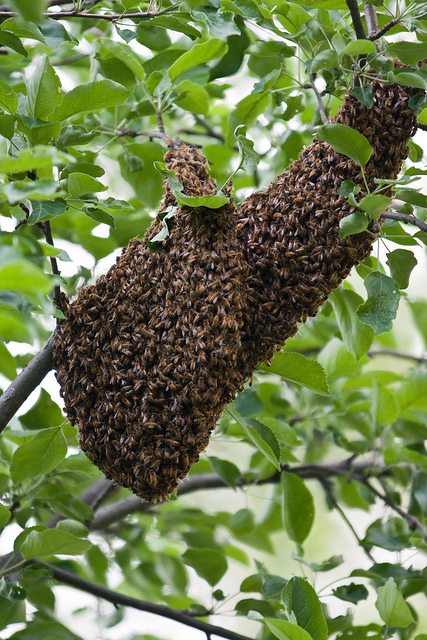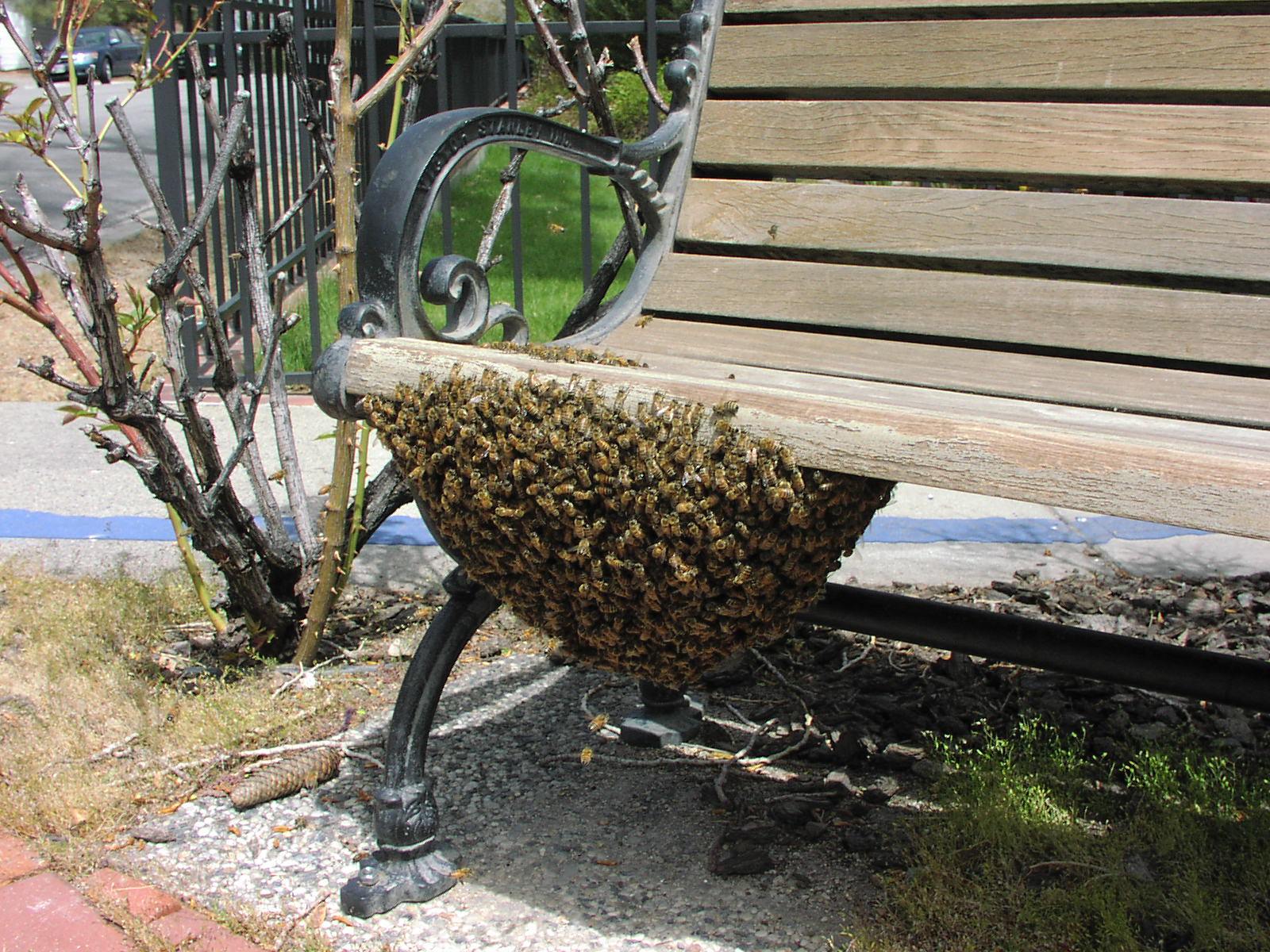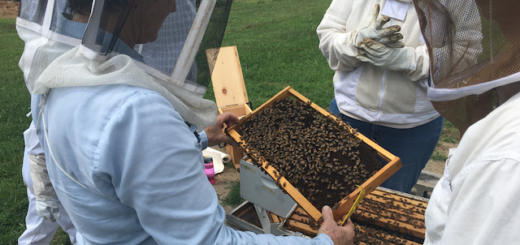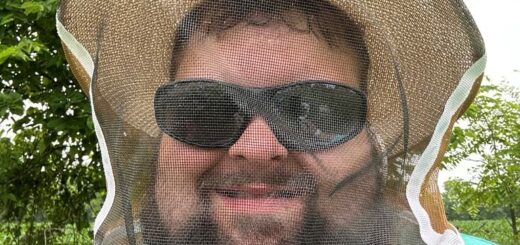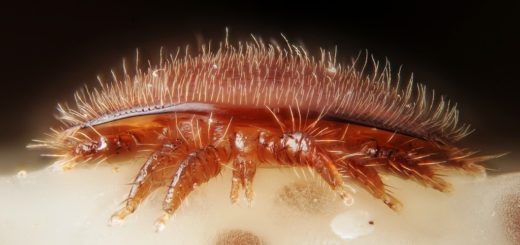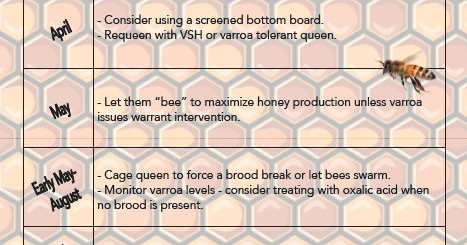We’ve consolidated the most popular questions we’ve been asked over the years. Feel free to email us if you need additional help.
Click on a category below.
Beekeeping Advice
The best place to start in the journey to becoming a beekeeper is by taking a class. The CCBA offers a six week class on odd number years and a one day class on even numbered years, so there is some type of class given each year. There are also many books and magazines on beekeeping that are available and are valuable resources. Finally, nothing beats hands on experience, and the CCBA offers field days at the Central Carolina Community College bee hives. Field days occur spring through fall and the dates are normally listed on our calendar of events.
Beginning beekeeping books and magazines:
- First Lessons in Beekeeping, Keith Delaplane
- The Backyard Beekeeper, Kim Flottum
- Beekeeping for Dummies, Howland Blackiston
- Bee Culture Magazine
- American Bee Journal
Beekeeping information
Honey bees and other native pollinators need your help to stay alive! There are several ways you can help all pollinators, here is a short list:
- Pollinator plants: there are many resources for pollinator plants that are native to NC-click here to learn more
- Pesticide spraying: Pesticide application is common for many homeowners to kill various pests. Following the pesticide label is critical and spraying in the evening will help to minimize the effect on pollinators.
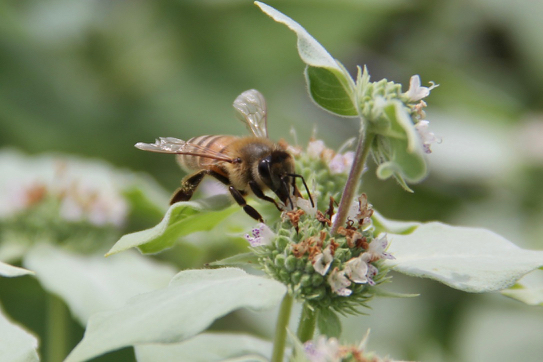
Honey bees can be acquired a few different ways and like anything else, there are pros and cons.
Swarm: This method of getting honey bees is great because they are free bees! But, there is no guarantee that you can catch or trap a swarm, so this is probably not the most reliable method for acquiring bees for the new beekeeper.
Package: Packages of honey bees are delivered around March. This method of acquiring honey bees is good choice for new and experienced beekeepers, plus the cost of a package can be fairly reasonable. The downside of packages is that the honey bees and queen are not familiar with each other and extra care must be taken to ensure the queen is accepted.
Nucleus colony, or nuc: Nucs are the best way for new beekeepers to start out or for experienced beekeepers to expand their apiary. Nucs are normally delivered later than packages, any time from April to June. The benefit of starting off with a nuc is that the queen and the honey bees are an established colony, so no introductions are needed. The downside to nucs are their cost, which can be much more than packages.
Packages are normally purchased through a honey bee supply store. Nucs can also be purchased through a honey bee supply store, or directly from a licensed supplier as found on the North Carolina Apiary Services website (click here).
Beekeeping Resources
There has been a lot of publicity about the threat to honey bees and other pollinators in the news lately. What exactly are the threats to pollinators, and how real are they? This list is not comprehensive, but these are the top issues that are presented at most meetings currently.
- Varroa mite-this is public enemy number one for honey bees. This mite is originally from Asia and arrived in the US in the late 1980’s. Varroa mites feed off of the honey bee fat body, similar to the human liver, and transmit diseases if left unchecked. This is the biggest threat to honey bees currently.
- Pesticides and other chemicals: pesticides are problematic when used incorrectly and they have been the focus of news reports the past several years. The bigger problem with agriculture or home use pesticides and chemicals is that they are stored in the bees wax and can affect future generations of honey bees.
- Loss of habitat: Honey bees and other pollinators are losing habitat for various reasons, and while the loss of honey bee colonies is very public, the loss of native pollinators is a much greater issue. You can help by planting a pollinator garden that attracts a wide variety of native pollinators. Click here for more information.
- Monoculture food source: Pollinating contracts are the biggest source of income for commercial beekeepers. Honey bees are shipped around the country for almond, sunflower, canola, grapes, apples, watermelons, avocados, and more. The limitation of varying pollen sources can be hard on honey bees, the same as if humans ate only french fries for a month, then chicken the next month, and so on. Honey bees require a balanced diet, the same as humans, and they can get stressed when pollinating single sources.
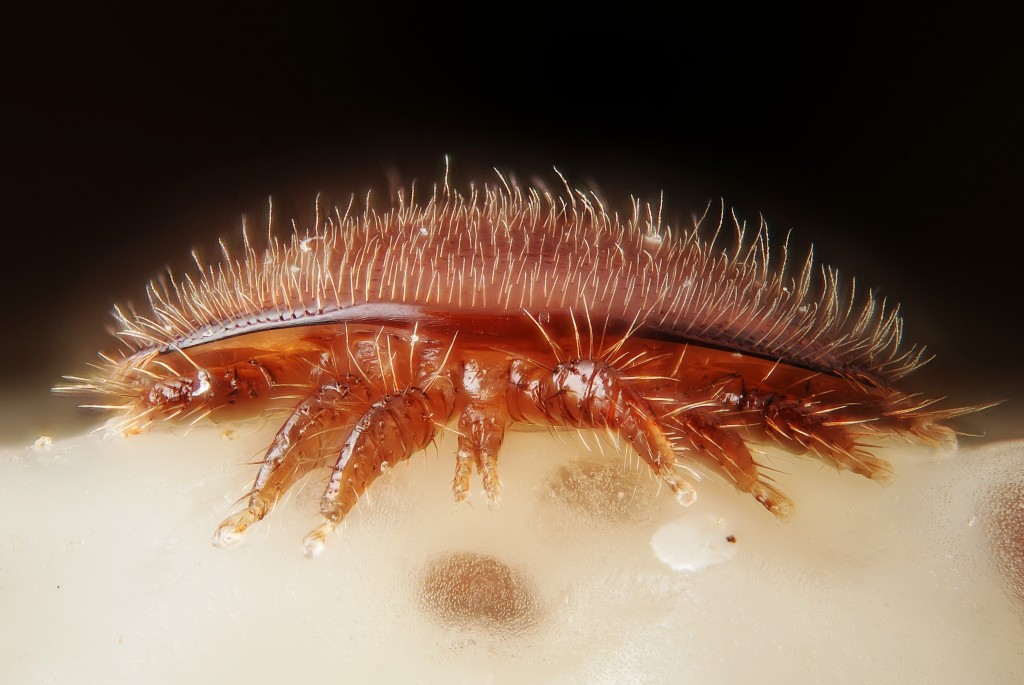
Gilles San Martin
Beekeeping equipment is available in many stores close to Chatham County. The list below is not exhaustive and covers up to about an hour or so drive.
Additionally, there are large bee supply companies that will ship items:
CCBA Membership
CCBA meetings occur the third Thursday of the month at 7pm in the old Ag auditorium off of the main traffic circle. The meetings are open to anyone that has an interest in beekeeping-you do not need to be a member to attend the monthly meetings. Please review our calendar of events to confirm the meeting location, as this does change from time to time.
The address for the auditorium is 65 E Chatham St, Pittsboro, NC. However, the auditorium is on the back side of the building, as shown in the image below with the red arrow pointing to the entrance. Click here for directions.
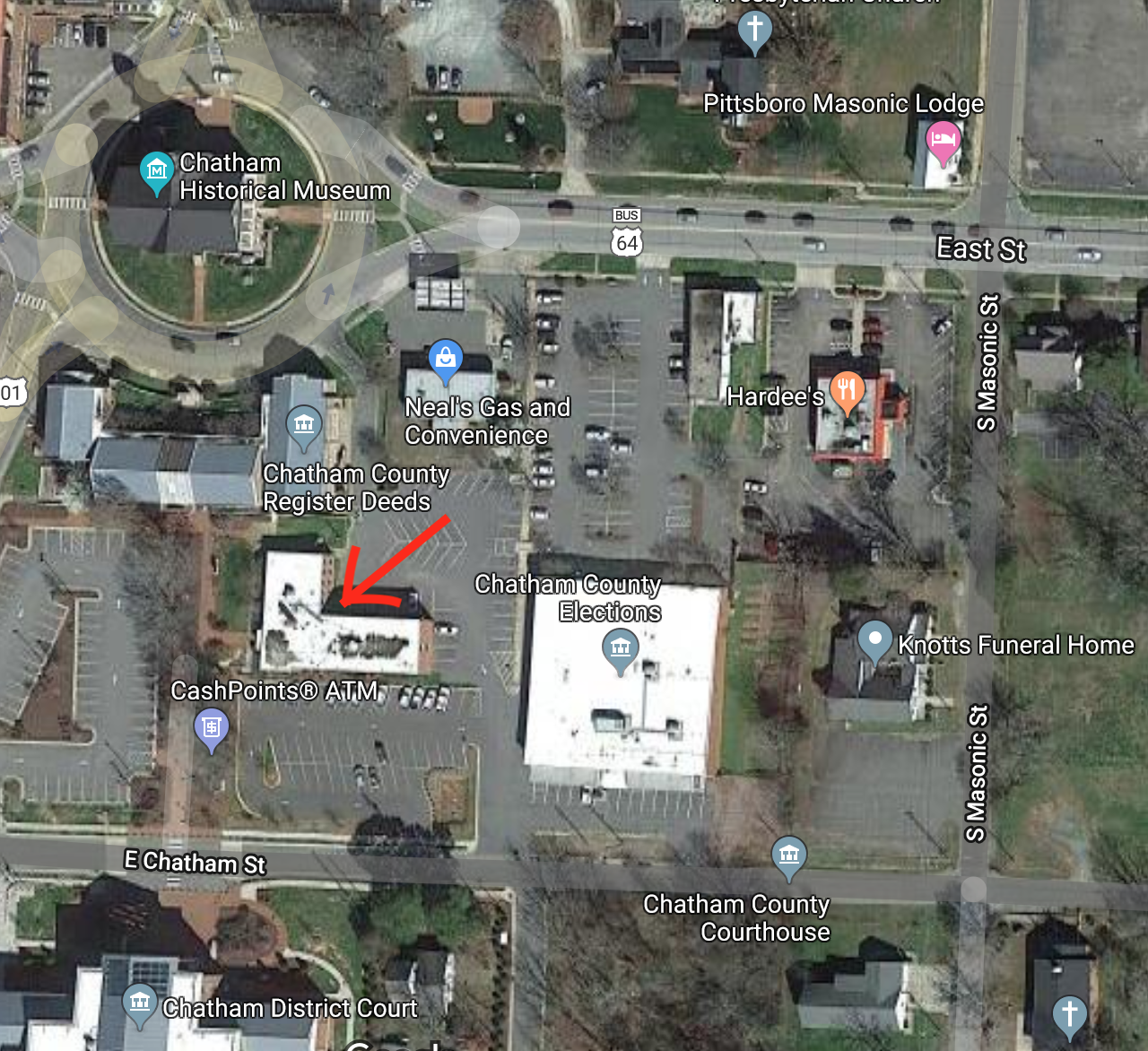
It’s really easy to join CCBA! Simply download our application form, fill it out and mail a check made out to Chatham County Beekeepers’ Association for the $10.00 annual dues to P.O. Box 1083, Pittsboro, NC 27312
General insect questions
Honey bees are attracted to the sugar syrup in hummingbird feeders and during the hot summer months, honey bees will be drawn to the sweet nectar source. There are a few companies that market bee proof hummingbird feeders, KSCanuck is one company that has proven successful. Click here for more information.
Honey bees and wasps are all insects that can sting, however honey bees lose part of their abdomen (and eventually die) when they sting a human or mammal. Wasps, on the other hand, can sting repeatedly. Honey bees will usually only sting to protect their hive or if they are stepped on accidentally. Honey Bees also have small hairs that cover their body, while a wasp will normally have a smooth surface.
Honey Bee

Wasp
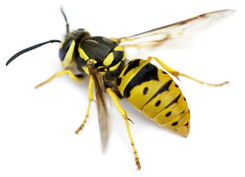
Honey bee removal
Honey bees will find any suitable location for their colony and unfortunately this may sometimes include the walls of a house. What do you do if you suspect honey bees have moved in? The Chatham County Beekeepers have a few members that specialize in honey bee removals. It is important not to spray the honey bees or their colony in an effort to rid them from your house. While this will kill this colony, the comb and honey will need to be removed otherwise mice and other insects will move in and cause more problems. An experienced beekeeper with construction experience will ensure that the honey bees are removed and relocated properly.
Here are some examples of honey bee relocations, or cut outs as these are called in the beekeeping world.
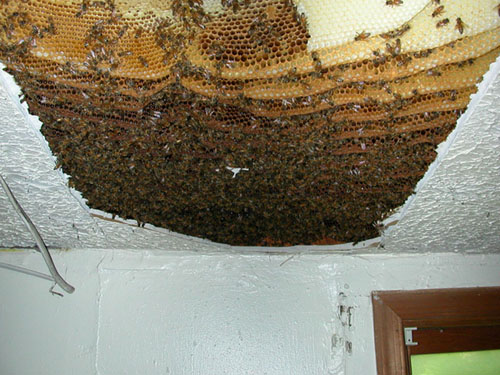
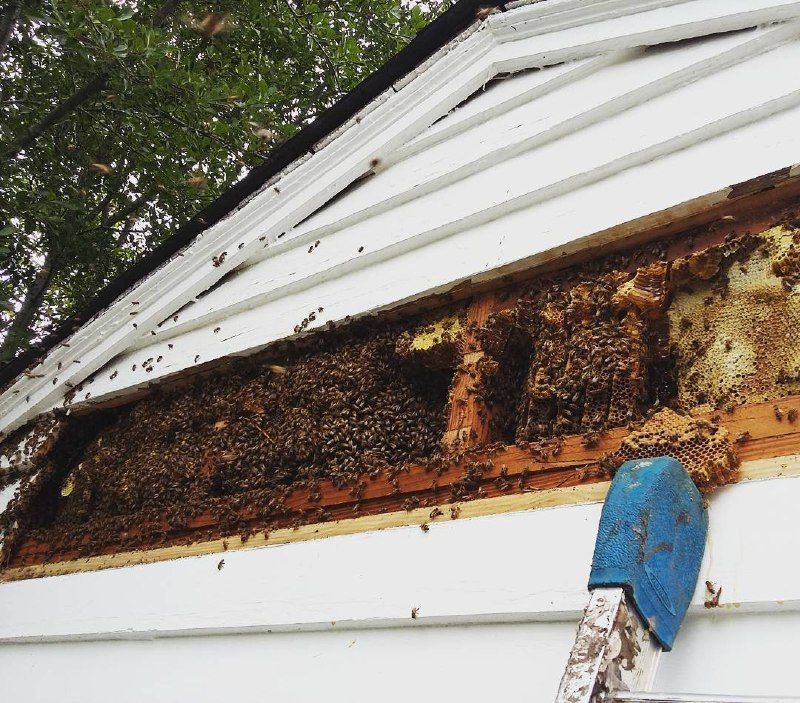
Local Honey or other Bee Products
Honey should be stored in a dark cabinet at room temperature. Do not refrigerate honey, this will make it crystalize faster. Honey should also be stored in a sealed container or jar.
Honey will eventually crystalize and granulate over time. This is a normal process and has a lot to do with the type of nectar the honey bees collected to make the honey. There is nothing wrong with granulated honey and many people around the world enjoy using granulated honey as a sweetener.
Honey can be decrystalized by placing the jar in a warm (not boiling) water bath until the honey is liquid again. You can also use a food dehydrator, using a setting lower than 120* F. DO NOT microwave honey since this will destroy the good enzymes found in honey.
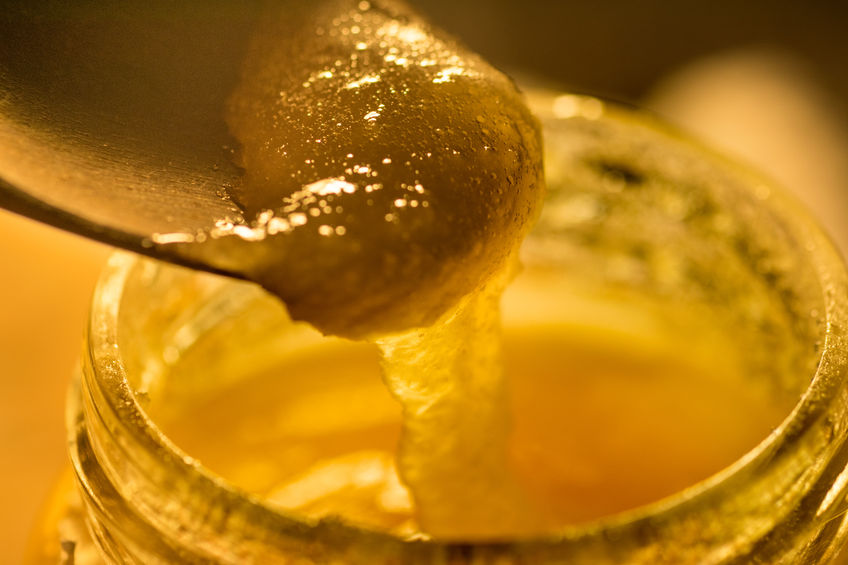
Swarm
Honey bees swarm when their colony, or hive, becomes too congested. Honey bees normally swarm in the Spring, but swarms may occur as late as fall.
During a swarm, about half the bees in the colony, along with the queen, leave en masse and gather on a nearby structure or tree. A swarm of honey bees is very impressive to witness, however they are not aggressive in most cases. Honey bees are normally only defensive of their colony and don’t have a reason to attack when they are outside of the hive.
Honey bees will only stay at the temporary location for a short while, anywhere from an hour to a day. Scout bees will fly to search for a suitable new home and once this is done, the colony will leave for the new site.
If you see a swarm of honey bees, either a ball of bees or thousands of bees flying around, contact the CCBA Swarm Commander and they will send out a message to the group to collect the swarm.
Here are some examples of honey bee swarms:
